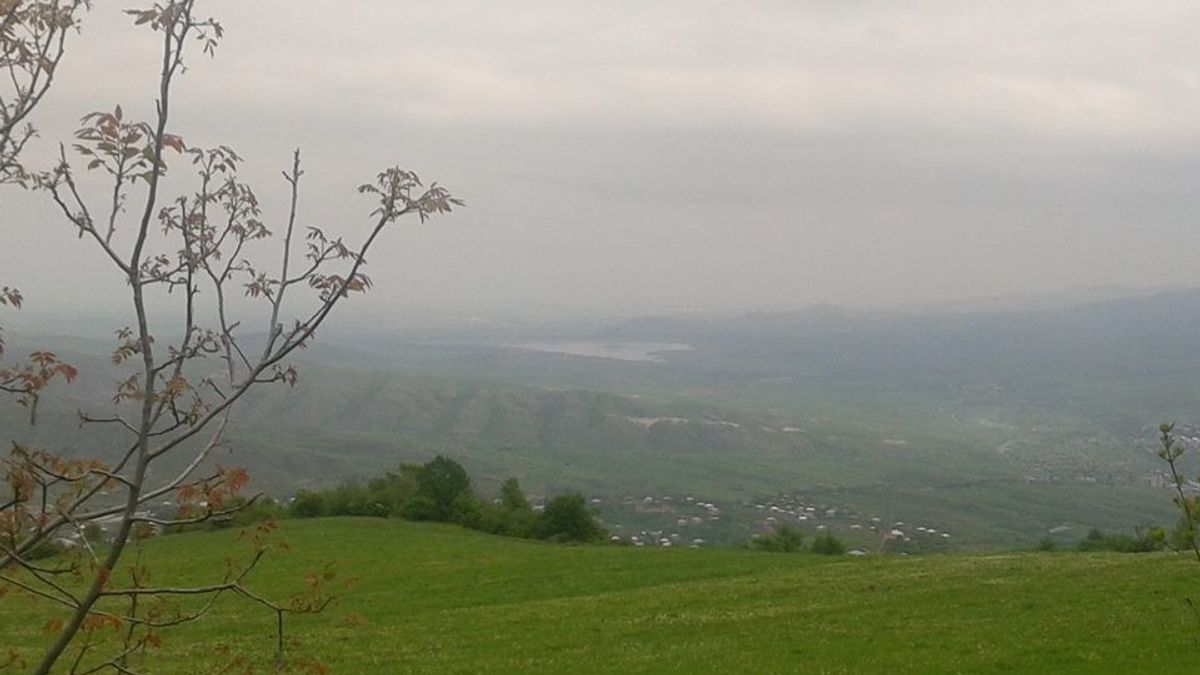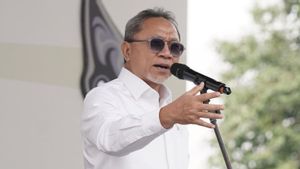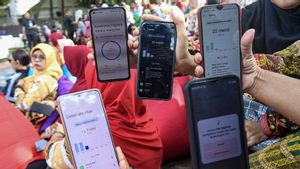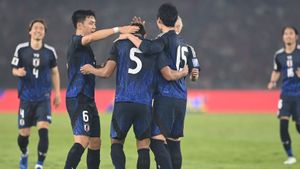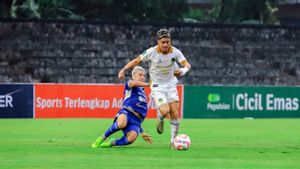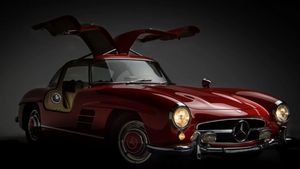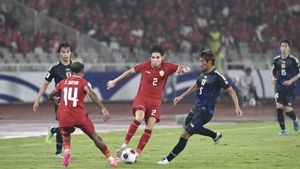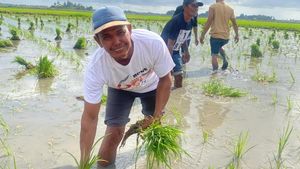JAKARTA - The war between Azerbaijan and Armenia started again on Sunday, September 27. Both sides return to fight over Nagorno-Karabakh. The regional dispute is the longest conflict in the territory of the former Soviet Union. To this day the two countries are still on standby to take up arms. Artillery, helicopters and tanks are stationed along the Nagorno-Karabakh border.
Launched Anadolu Agency, Thursday, October 1, during the war, the Azerbaijan forces disabled at least 2,300 Armenian soldiers in a counterattack. This amount was obtained from the official statement of the Azerbaijan Ministry of Defense. They claim the death and wounded of a total of 2,300 soldiers in question.
At the same time, the Azerbaijan forces destroyed 130 tanks and armored vehicles, more than 200 artillery systems, 25 air defense systems, six command zones, five ammunition depots, up to 50 anti-tank weapons and 55 cars belonging to Armenia. Armenia launched a counterattack, leaving infrastructure in the region badly damaged. Several civilians were also injured in the attack.
Tuesday, September 30, the UN Security Council asked Armenia and Azerbaijan to immediately stop fighting. Not only that, the UN Security Council strongly condemns the use of force in resolving conflicts between the two countries.
Even so, Azerbaijan President Ilham Aliyev said his country had tried its best to hold negotiations. However, Armenia has hindered the process. After all, Nagorno-Karabakh is repeatedly mentioned as being part of Armenia.
“The Armenian prime minister has publicly stated that Karabakh is (part of) Armenia, period. In this case, what kind of negotiation process can we talk about, "said Aliev, quoted by the Associated Press, Tuesday, September 30.
pic.twitter.com/x1bdjT7Uub
- Ilham Aliyev (@presidentaz) September 27, 2020
Aliev added that according to the principles brokered by the Minsk Group - founded in 1992 by the Organization for Security and Cooperation in Europe (OSCE) to resolve conflicts, the territory around the Nagorno-Karabakh autonomous region should be moved to Azerbaijan.
Aliev also reiterated the words of the Armenian Prime Minister (PM) Nikol Pashinyan: Karabakh is Armenia and that we must negotiate with the so-called Nagorno-Karabakh puppet regime, (he) is trying to break the format of negotiations that have existed for 20 years.
Azerbaijan, with active encouragement, political and military support of #Turkey, is expanding geography of hostilities to territory of Armenia. #Armenia and #Artsakh will give adequate military-political response to Azerbaijan's attempts to undermine regional #security & #peace
- Nikol Pashinyan (@NikolPashinyan) September 29, 2020
On one occasion, Pashinyan also said that negotiation is the most difficult thing to talk about at this time. "It's very difficult to talk about negotiations. When certain military operations are underway."
The start of the conflictHistorically, Azerbaijan and Armenia have started hostilities for various reasons, ranging from ethnicity, religion and politics. In religious matters, for example. Azerbaijan has a Muslim majority population which also houses many Turks. Meanwhile, Armenia is a predominantly Christian country dominated by ethnic Armenians.
“The roots of the conflict in Nagorno-Karabakh go back centuries, due to competition between Christian Armenians and Muslim populations under Turkish and Persian influence. At the end of the 19th century, this area became part of the Russian Empire. At the end of World War I, the Soviets established the Nagorno-Karabakh autonomous region under the Soviet Socialist Republic of Azerbaijan even though the population is predominantly Armenian, ”wrote a report from Tempo Magazine entitled Nagorno-Karabakh, One Day (2016).
Because the Nagorno-Karabakh parliament preferred to join Armenia in the 1980s, it sparked violence that escalated into war over time. As was to be expected, the breakup of the Soviet Union made Nagorno-Karabakh then proclaim independence. This act was the start of a bloody war that killed more than 30,000 people and displaced about one million people.
It is noted that ethnic Armenians took over Nagorno-Karabakh, as well as parts of Azerbaijan outside Nagorno-Karabakh. As a result, these efforts created a buffer zone between Nagorno-Karabakh and Armenia. Meanwhile, the Azeri (Azerbaijanis) were forced to flee from Nagorno-Karabakh to Azerbaijan. And ethnic Armenians fled from Azerbaijan.
Turkey and RussiaLater, the peace talks will take place mediated by the Minsk Group for Security and Cooperation in Europe (OSCE). It is a body formed in 1992 and chaired by France, Russia and the United States (US). The mediation resulted in a ceasefire agreement signed in 1994.
However, this peaceful effort has yet to bear fruit. Conflicts still continue, especially over the ceasefire violations that have continued to occur on the front lines over the past three decades. All these conflicts continue to cause victims to fall on both sides.
"Russia is suspected of being behind Armenia. Meanwhile, Azerbaijan is supported by Turkey. If a great country like Russia wants to stop supporting Armenia, the colonial and terrorist state in the Nagorno-Karabakh conflict, Russia will win over the 1.7 billion Muslim population, "said Yalcin Topcu, chief advisor to Turkish President Recep Tayyip Erdogan, as quoted by APA, 21 November 2016.
Azerbaycan'a yönelik saldırılarına bir yenisini ekleyen Ermenistan, bölgede barışın ve huzurun önündeki en büyük tehdit olduğunu kere daha göstermiştir beer. Türk Milleti her age olduğu gibi bugün de tüm imkanlarıyla Azerbaycanlı kardeşlerinin yanındadır.
- Recep Tayyip Erdoğan (@RTErdogan) September 27, 2020
This assumption is not just empty words. Russia has been known to sell arms to both sides. However, support has tended to be given to Armenia, which has been the place where Russia has built a military base. Turkey on the contrary.
Matthew Bryza, a political observer who also served as the United States' team of mediators for Armenian-Azerbaijan peace in the 2000s, said that Turkey with all its capacities has fully supported Azerbaijan in the struggle to protect its territorial integrity. Turkish President Erdogan has also given direct support.
"Turkey will show no qualms about opposing any attack on Azerbaijan," Erdogan said.
Therefore, Bryza said the Armenian-Azerbaijan conflict had created another major power front, namely between Ankara (Turkey) and Moscow (Russia). Moreover, Turkey and Russia have recently appeared to be at odds over several conflicts in the Middle East, North Africa and Central Asia.
"The main players are Russia and Turkey," said Bryza, referring to the Azerbaijan-Armenia conflict quoted by TRT World.
The English, Chinese, Japanese, Arabic, and French versions are automatically generated by the AI. So there may still be inaccuracies in translating, please always see Indonesian as our main language. (system supported by DigitalSiber.id)
